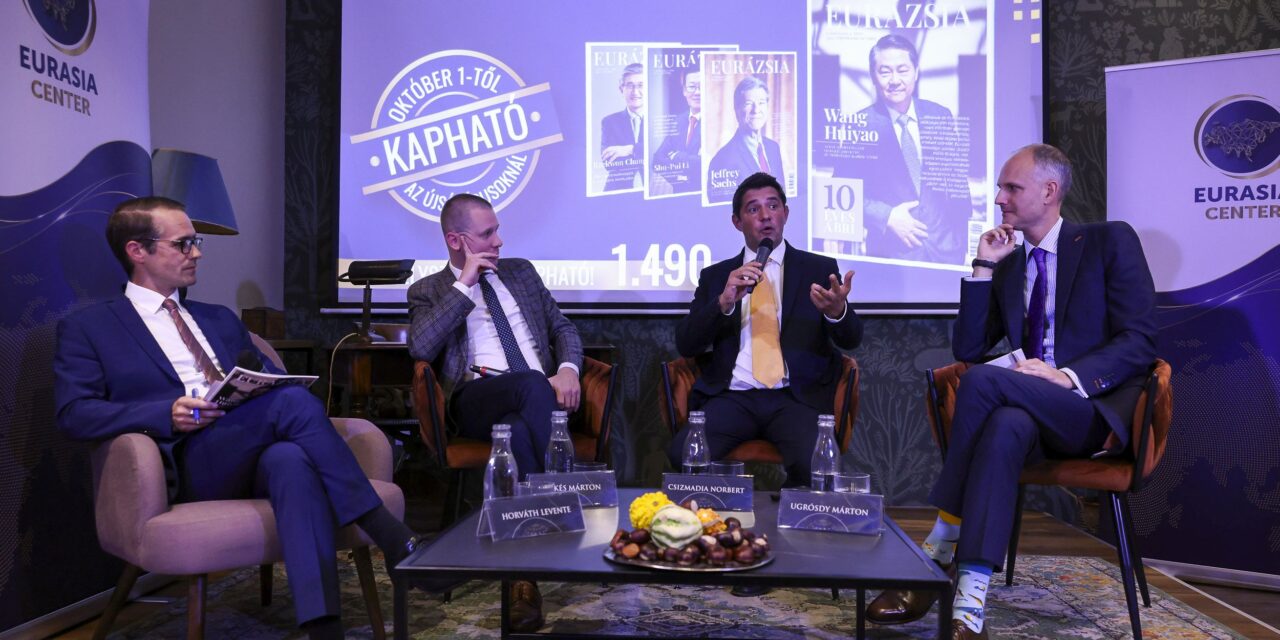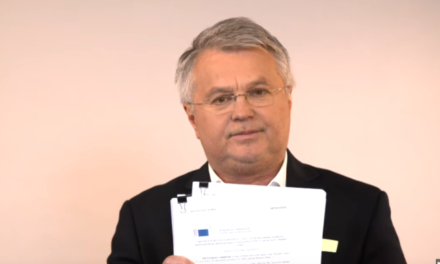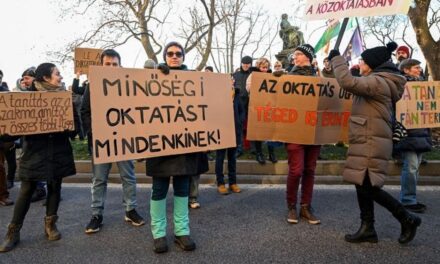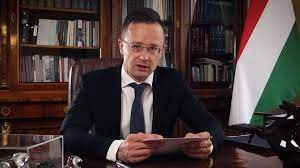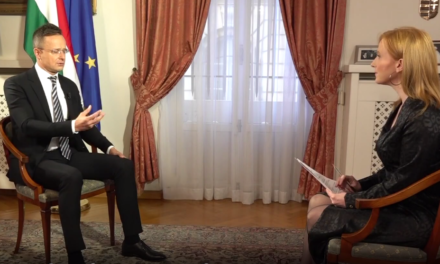The editorial board of Eurássia magazine organized a round table discussion on the multipolar world order and the rise of Eurasia.
The emerging multipolar world order, the rise of the Eurasian supercontinent and Hungary's policy of "opening to the east" and connectivity were the focus of a packed round table discussion by the editorial board of Eurássia magazine on Tuesday, where the latest issue of the monthly Eurássia, which is now available at newsstands nationwide, was presented. .
The Eurássia magazine's round-table discussion and magazine presentation entitled We Open a Window to the East - The Era of Eurássia was held with great interest on Tuesday evening in the Scruton VP café in Budapest.
The participants of the conversation are Márton Békés, the XXI. Director of the Century Institute, Norbert Csizmadia, Chairman of the Board of Trustees of the Pallas Athéné Domus Meriti Foundation and the Neumann János University Foundation, and Márton Ugrósdy, Deputy Secretary of State in charge of the Office of Political Directors of the Prime Minister's Cabinet, and the moderator was Levente Horváth, former Consul General in Shanghai, Director of the Eurasia Center .
"We are witnessing a change in the world system," Márton Békés pointed out, according to whom we are seeing the outlines of a multipolar world system emerging, the organizing principle of which will not be the market, but rather infrastructure and large spaces.
"Humanity will organize itself into large spaces, which will move towards a self-sufficient system," he explained, adding that this will not erase but change globalization. The historian expressed his hope that the multipolar world order - to which the rise of the "global south" also greatly contributes - will usher in the era of global cooperation, since the unipolar system that characterized the past decades - which included the wars in Iraq and Afghanistan, or the bombing of Belgrade he brought with him - this was not typical.
"Three key words are necessary to understand the changing world order, and these are connectivity, complexity and sustainability," Norbert Csizmadia pointed out. The geographer emphasized that the center of gravity of the world economy has shifted towards the East, the rising Eurasia.
He reminded that Hungary recognized the transformation of the world order in time, as it already announced the strategy of "opening up to the East" in 2011, and in 2015 became the first European country to join the Chinese Belt and Road Initiative.
Márton Ugrósdy warned that Europe is not performing as well as it should, that it is far behind in innovation compared to Asia, among others, and China, which is building very consciously in research and development. As he said, the role of our continent has been devalued in the world, and Europe's money, economic and political power are not enough to play a serious role.
According to Márton Ugrósdy, it would be important to talk about the aspiration, also called "strategic autonomy", so that Europe has its own ideas about where it belongs in the world, but in the Euro-Atlantic region those who talk about an independent European interest are put to shame.
The deputy state secretary drew attention to the fact that today, especially in relation to the countries of the "global south", it does not work that the United States wants to dictate on the basis of ideological reasons with whom it is allowed and with whom it is not allowed to trade and cooperate. He emphasized that the Hungarian national interest is always at the center of Hungarian foreign policy.
Levente Horváth pointed out that while the "global south" is interested in the development of a multipolar world order and Eurasian connectivity, the West, and especially the United States, strives to preserve its hegemony.
He also touched on the fact that while Hungary shapes its foreign policy based on its national interests, the European Union places its foreign policy on ideological foundations. "The Eurasian states play a big role in the transformation of the world order, and in order for Hungary to position itself properly, it is important to get to know Eurasia and the different cultures and ways of thinking," he emphasized in his closing remarks.
The Eurázsia magazine was also presented to the public at the event, which is now published monthly and is available at newsstands nationwide. The aim of Eurasia is to "open a window to the East", to present the geopolitical and economic developments, history, colorful cultural and sports life, as well as gastronomy of the Eurasian supercontinent in a readable, understandable form, rich in images. The current issue of Eurássia is available at newsagents nationwide, the central theme of which is the Belt and Road Initiative, which is ten years old this year.
Cover photo: Márton Békés, the XXI.
Director of the Century Institute, Norbert Csizmadia, Chairman of the Board of Trustees of the Pallas Athéné Domus Meriti Foundation and the Neumann János University Foundation, and Márton Ugrósdy, Deputy Secretary of State, Head of the Office of Political Directors of the Prime Minister's Cabinet, and the moderator was Levente Horváth, former Consul General in Shanghai, Director of the Eurasia Center Source: Eurássia/Róbert Hegedüs

